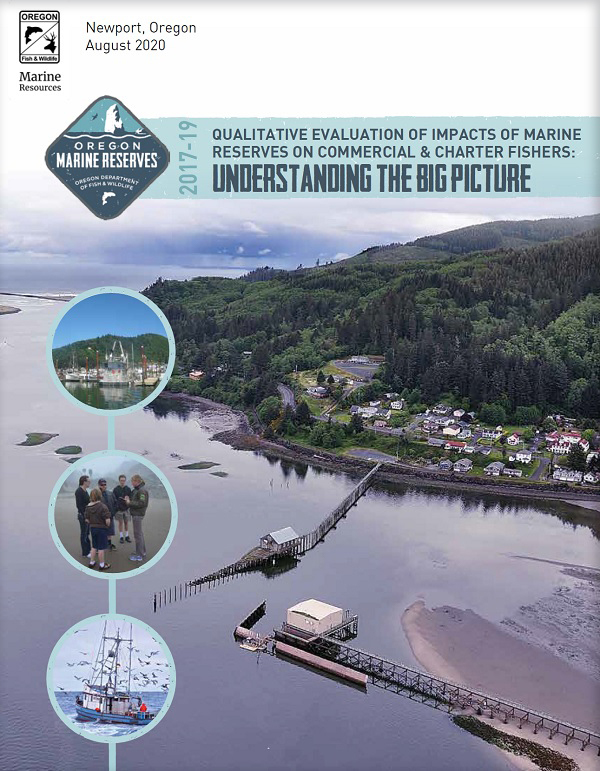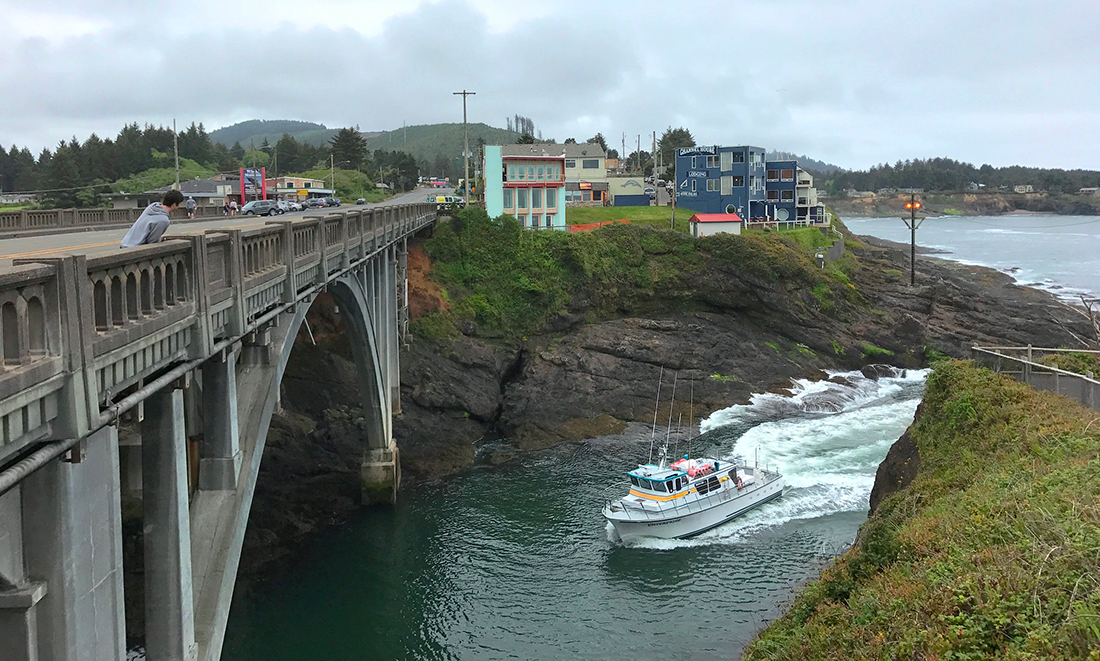Qualitative Evaluation of Impacts of Marine Reserves on Commercial and Charter Fishers: Understanding the Big Picture
This project is designed to capture the lived experience of commercial and charter fishers who are directly impacted by marine reserves. We were particularly interested in the economic, social, and cultural impacts of the marine reserves, including whether or not fishers were shifting their efforts to other species or locations following reserve implementation. This project sought to hear from fishers about their own experiences and perspectives.
Big Picture Takeaways
- Marine reserves are not divorced from other resource management decisions in the minds of fishers and other coastal residents. Therefore, while fishers often know more about marine reserves than the Oregon public at large, perspectives on the reserves are often tied to perspectives on other management and conservation projects and strategies.
- Given the challenges of the fishing industry, and changes or loss in fishing opportunity over the years, this conflation means that fishers often have negative reactions to marine reserves despite most fishers – though not all – saying that the current five reserves have had a nominal economic impact.
- Communication strategies and cultural worldviews differ among fishers and non-fishers along the coast. These different worldviews and communication strategies may exacerbate conflict among different constituencies.
- There was genuine interest from many of the fishers to work with scientists and managers to get a better understanding of the ocean. Fishers expressed frustration that their knowledge is often referred to as anecdotal rather than seen and valued as expert knowledge.
- Positive experiences with marine reserves could have ripple effects on establishing better manager/fisher/scientist interactions. In turn, improving this dynamic has the potential to increase community resilience to risk by improving trust and efficiency in decision-making.
This project was led by Dr. Elizabeth Marino, an Associate Professor of Anthropology and Sustainability at Oregon State University – Cascades, in collaboration with the ODFW Marine Reserves Program. This research is part of on-going qualitative investigations into the impacts and experiences of the fishing community along the coast of Oregon in response to marine reserve implementation.

Infographic: What Do Fishermen Think About Marine Reserves?
